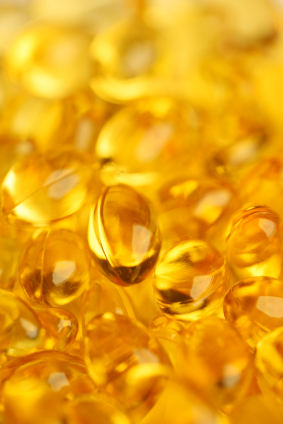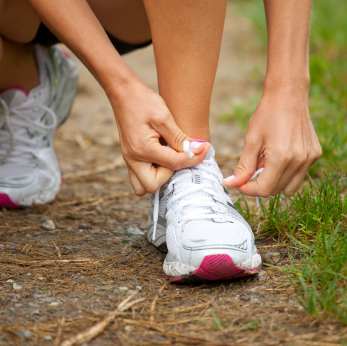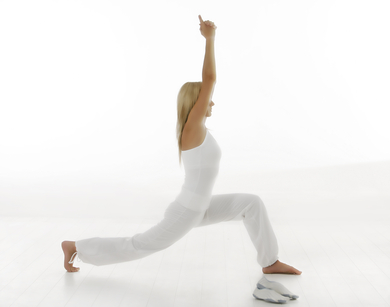MsFLASH and omega-3s
In early August, I posted two pieces about MsFLASH –Menopause Strategies: Finding Lasting Answers for Symptoms and Health — a network of studies evaluating potentially promising treatments for common menopausal symptoms. Started by the National Institutes of Health, MsFLASH comprises five research centers in Boston, Oakland, Philadelphia, Seattle and Indianapolis who are exploring various interventions for hot flashes, night sweats, mood disorders and sexual issues.
One of these trials set out to evaluate the role of omega-3 fatty acids in menopause, more specifically, whether or not omega-3s would be useful for alleviating hot flashes in women who prefer alternative strategies. Although the benefits of omega-3s are widespread, researchers have not been able to prove that they work against hot flashes. Consequently, over three months, 346 women took either three omega-3 capsules or placebo daily in addition to yoga, aerobics or usual activity. The women reported having roughly 8 hot flashes a day at the start of the study.
Unfortunately, the verdict is still out. Taking omega-3s appeared to have little effect on hot flash frequency or bother; declines in both measures were similar among women whether they were taking the fish oil or placebo (an average 35% decline in both groups and in both variables). What’s more, taking daily fish oil supplements didn’t appear to help sleep or mood. Personally, I find the lack of effect on mood surprising since there are data showing a benefit on depression, especially when it comes to DHA. However, even the researchers acknowledge that the lack of effect here might be due to the degree of depressive or anxiety symptoms that the women in this study experienced.
Regardless, if you are taking fish oils and have seen an improvement in symptoms, I would love to hear from you. Do they help? The search for the magic bullet for hot flashes continues but in the meantime, the more we share, the more we collectively know.
Read More
Fit to be tied: MsFLASH and exercise
Exercise. Does it or doesn’t it? That is, does exercise improve menopausal symptoms? Some studies have shown that it does; and others, like the one I am about to share, shows that it does not.
I am fit to be tied, literally.
Not angry or annoyed but rather, regardless if exercise can improve vasomotor symptoms or not, there is absolutely no doubt that it helps maintain weight, improves overall wellbeing, promotes healthy bones, and may even result in better sleep in midlife. On Wednesday’s post, I shared information about a series of studies called MsFLASH, studies geared towards identifying strategies to alleviate menopausal symptoms and overall health. Today, I ran across one of these trials, published online in Menopause, the goal of which was to clarify the impact of three times weekly aerobic training in women who were in late perimenopause or full menopause reporting frequent and bothersome hot flashes and night sweats.
Exercise/aerobic training can mean a lot 0f things. This time, women who were randomized to 12 weeks of exercise participated in trainer supervised conditioning comprising a treadmill, elliptical or stationary bike for 40 t0 60 minutes each session, with the goal of reaching up to 60% of target heart rate for the first month and up to 70% thereafter (this, along with workload and perceived exertion was measured throughout each session). Likewise, the women had energy expenditure goals relative to their body weight. The other group of women were asked to maintain their usual activity levels but at the end of the study, were offered a one month gym membership or yoga sessions.
While the verdict wasn’t so great for reduction of the frequency and bother of daily hot flashes (both study groups reported declines in hot flash frequency by roughly 2.5% and bother only changed minimally), adhering to training sessions appeared to favourably move the needle for sleep quality and quantity and yielded small improvements in depressive symptoms. Another interesting finding was that race appeared to play a role. Data have shown that African American women actually experience more severe hot flashes than their white peers. And, in this study, while exercise had some impact, albeit minimal, on hot flashes and night sweats, this impact was only seen among white women.
Still unanswered are whether or not small bouts of exercise can positively impact vasomotor symptoms or if individual differences (such as the one that race provides) also play a role. While these questions are being pondered, I’ll leave you where I started: exercise and menopause? Fit to be tied. Don’t give up the activity; it may not help your flashes but it yield a whole lot of benefits beyond cooling the heat that ails.
Read More
Newsflash: MsFLASH needs participants
I know, it’s Wednesday and you are probably thinking that I’m taking a mick; who else would be Ms. FLASH than me, right?! However, this is a bonefide ask and post. MsFLASH –Menopause Strategies: Finding Lasting Answers for Symptoms and Health (MSFLASH)– is a network of studies evaluating potentially promising treatments for common menopausal symptoms. Started by the National Institutes of Health, MsFLASH comprises five research centers in Boston, Oakland, Philadelphia, Seattle and Indianapolis who are exploring various interventions for hot flashes, night sweats, mood disorders and sexual issues. Mind you, some of these studies are looking at pharmaceuticals so they might not be appealing. However, if you are a woman between the ages of 40 and 62, going through the pause and experiencing frequent symptoms, you may wish to consider participating.
My goal is and has always been to further our understanding of the challenges of menopause and exploring viable strategies to address them. Without research, this is impossible and leaves only one avenue: hormone replacement. And we all know what a slippery slope that has proven to be.
MsFLASH may ultimately reveal nothing of value. Or, it may be five years times $4.4 million well spent.
Check it out. Who knows? You may be part of history in the making!
Read MoreCan you exercise those hot flashes away?
It’s no secret that exercise is an integral part of my daily life and to maintaining some semblance of balance. I have long said that without some form of activity, you’d probably find me crumbled in a corner in a sea of unease. To put it quite simply, I don’t feel well when I don’t exercise. However, as much as I would like to believe that my daily workouts are somehow keeping those flashes at bay, the evidence is not there. In fact, the most recent information out of the MsFLASH (Menopause Strategies: Finding Lasting Answers for Symptoms and Health) Research Network may put the question to rest.
In a quest to tease out the answer, researchers compared the effects of tri-weekly, moderate intensity aerobic exercise to no exercise in 248 women in late perimenopause or postmenopausal sedentary women. And while they hypothesized that regular exercise would significantly reduce the frequency and severity of hot flashes, what they found was the opposite. The reported decline in flashes was equal between the two groups. Moreover, the reduction in how bothersome the flashes were relative to activity was minimal and not significantly different between the two groups.
On the flip side, exercise did seem to benefit sleep quality, reduce insomnia and depressive symptoms but only to a small degree.
So, what to make of these data? First, exercise is important to overall health and wellbeing and has been shown to help maintain an optimal weight, benefit the heart, boost muscle strength, prevent bone loss and assist with balance. There is no doubt whatsoever that exercise is an essential part of living, particularly as we age. The conclusion? It’s not time to throw the baby out with the bathwater. Still, in so far as exercise and vasomotor symptoms, research has repeatedly provided compelling evidence that all bets are off; exercise does not alleviate menopausal vasomotor symptoms, particularly in women who are usually sedentary. Yet, there is a silver lining in this story as experts don’t know if a single bout of exercise can benefit hot flashes in the short term. Moreover, physiological and psychological factors may also skew results; in this study, the effect of exercise on the frequency of vasomotor symptoms varied significantly by race, with white women experiencing declines relative to usual activity and African-American women experiencing no benefit.
The benefits of exercise to health outweigh its null effects in the vasomotor department. And, pushing the heart rate up a bit may help boost those nightly 40 winks. Don’t stop believing or moving. But when it comes to flashes, it’s time to look for help elsewhere.
Read MoreLife quality and yoga
Perimenopausal? Menopausal? Are you having difficult sleeping, mood swings, lack of focus and diminished energy? How’s your sexual functioning?
Take one look at that list of woes and it’s no wonder that women sometime want to tear their hair out during menopause. However, there is evidence that attenuating symptoms can help improve quality of life and that certain interventions, including exercise, yoga and/or omega-3 supplements can help.
Medical experts continue to question the value of these interventions during the ‘pause, citing a lack of scientific evidence and conflicting study results. Some even go so far to refer to strategies other than hormone replacement or some other pharmaceutical intervention as ‘snake oil.’ Yet, data continue to evolve that thinking outside the HRT box may help some women and it is for this reason that I wanted to share some newly-published study findings with you.
This latest MsFLASH (Menopausal Strategies: Finding Lasting Answers for Symptoms and Health) study examined 338 women who were randomly assigned to 12 weeks of studio and in home yoga, tri-weekly 40 t0 60 minutes moderate-level cardiovascular training sessions or usual activity. The women were also given and asked to take a daily omega-3 or placebo capsule. Consequently, they were asked to score factors that impact quality of life during menopause, things like vasomotor symptoms, physical functioning, pyschosocial impact and sexual functioning.
The results?
Women who practiced yoga appeared to achieve small but still greater improvements in their overall quality of life (on the basis of the factor scores mentioned above) versus the other inventions. Moreover, it appeared that yoga reduced the extent to which women found their hot flashes bothersome or interfering with daily functioning. Apparently, neither exercise or omega-3s impacted these measures.
The reason for this potential improvement has to do with yoga’s theoretical impact on how balanced the sympathetic nervous system remains in the face of midlife stress and hormonal imbalances. Yoga may help maintain balance and how well or positively we perceive the world around us.
Despite the small, incremental benefit provided by yoga versus exercise or omega-3 supplementation alone, it’s important to emphasize that very few studies have focused on quality of life specifically as it relates to yoga. And, while previous studies have shown benefit, getting women to ‘go the distance’ during these studies has proven difficult.
Mind you, by no means do these study findings suggest that you should give up exercise or omega-3s and switch to yoga. Both of the former strategies have their own benefits. But you may want to consider your quality of life and actions to improve it during menopause and beyond. Yoga practice may be an important part of the puzzle.
Read More










